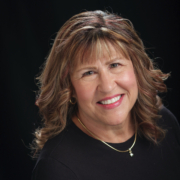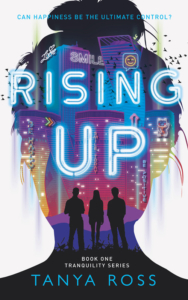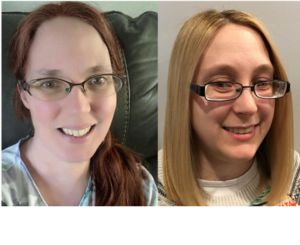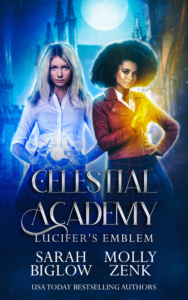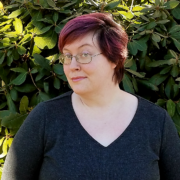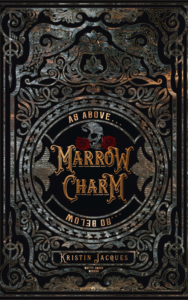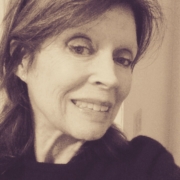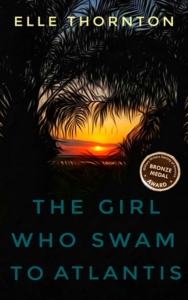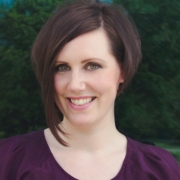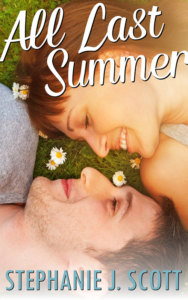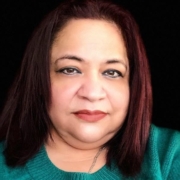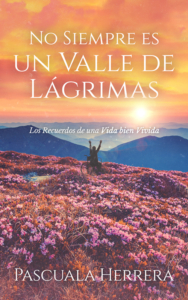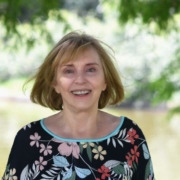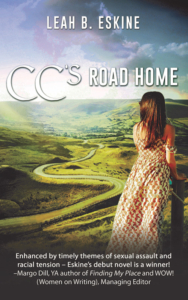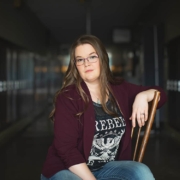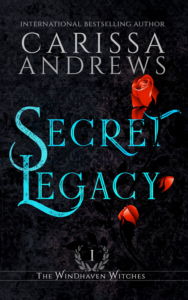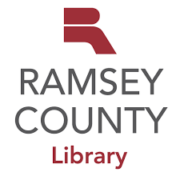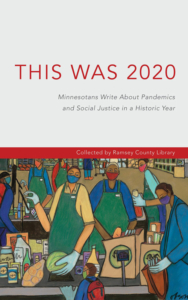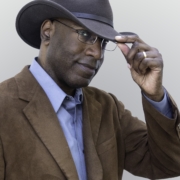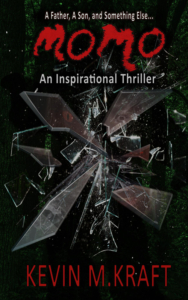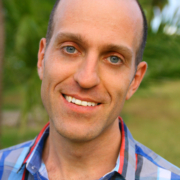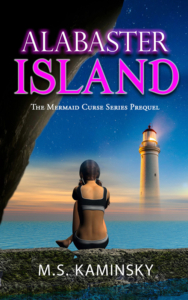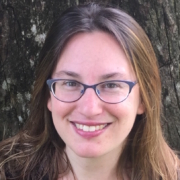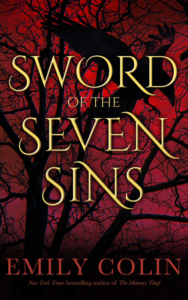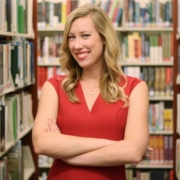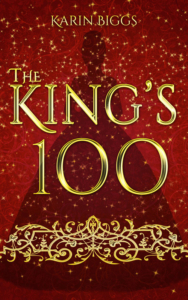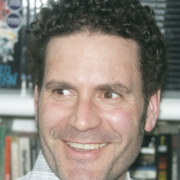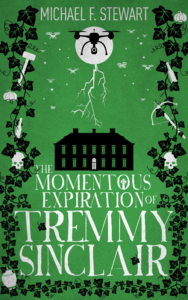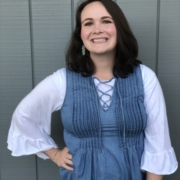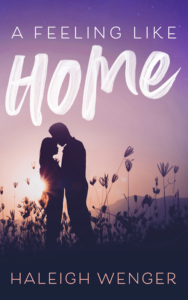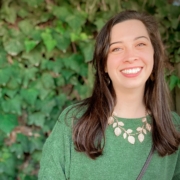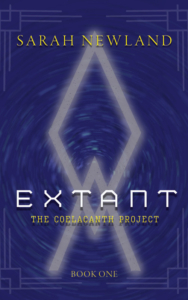2021 Alberta Author Project Winner
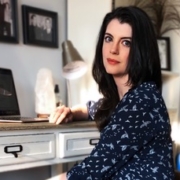
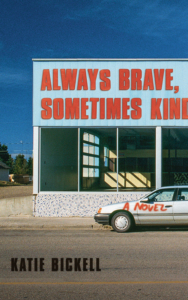
Katie Bickell
Always Brave, Sometimes Kind
Strathcona County Library
Tell us a little bit about yourself.
Tell us a little bit about your winning book.
What made you want to be an author?
How have libraries played a role in your indie author journey?
Do you have any advice for aspiring indie authors?
Dear Aspiring Author, your library is your natural habitat. Your people are there. We’re waiting for you. Go. Read, write, talk, learn, teach, meet. You have all the potential you need, and it’s stored at your local library. Go get it.
2021 California Author Project Winners
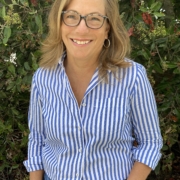
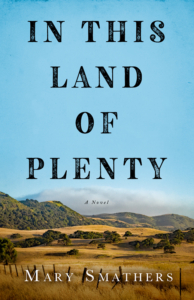
Mary Smathers
In This Land of Plenty
Harrison Memorial Library
Tell us a little bit about yourself.
Mary Smathers grew up in Los Altos, California and graduated from UC Berkeley with a degree in Latin American Studies. She earned a Master’s degree in Education and another MA in Educational Administration and Policy Analysis from Stanford University. From 1983 to 2013, she worked in public schools throughout California as a high school teacher, administrator, teacher trainer, grant writer and educational entrepreneur, helping to found three education companies and a public charter school.
Since that time, she has focused on writing, reporting for a bilingual, regional Costa Rican newspaper and publishing her first work of fiction, Fertile Soil: Stories of the California Dream, in 2016. In This Land of Plenty, her debut novel, a family saga based on California history, was published in July, 2020.
Currently, Mary’s projects include the development of a bilingual children’s book series, Tropical Tales, featuring jungle and ocean animals. She plans to launch the first six books in the series throughout 2022. She also is at work chronicling the lives of subsequent generations in the Brennan/Castro family tree. She expects it will take several books to complete the story of the fictitious California family of In This Land of Plenty.
Mary divides her time between California’s Central Coast and the Pacific Coast of Costa Rica.
Tell us a little bit about your winning book.
A Family Saga Through California’s Rich History…
When twenty-something Nicole Sinclair stumbles on DNA reports that document an ancestry far different from her father’s narrative of a white, northern European background, she enlists the help of her great grandmother to investigate their roots. As she and Great Gram ignore her father’s protests and search for documents in the attic of a historic San Francisco Victorian, the family’s actual history unfolds.
Their true Californio ancestors include a Spanish soldier in the Portola expedition to explore Alta California, a captured Ohlone native and a girl whose family walks with the De Anza settlers eighteen hundred miles from Sinaloa to the San Francisco Bay. Nicole slowly unravels the mysteries of her 250-year family tree, from California’s native inhabitants and its earliest European colonizers through the generations to the Gold Rush.
How does her origin story unfold after the arrival of those Spanish explorers? Can she and Great Gram find evidence of their true family tree and use it to protect the old house from being sold off? Can Nicole find common ground and reconcile with her father in the process? In This Land of Plenty’s family saga introduces the diverse cast of characters and complex social issues that populate California’s rich history while drawing a direct line to today’s residents.
What made you want to be an author?
I have loved writing, language and storytelling since I was a child. I wrote short stories and poems as a kid but stopped in about 8th grade. Then I focused on the more traditional analytical essay writing that was emphasized in my schooling. But I continued to love writing and wrote for my college newspapers, became an English teacher and also taught journalism to high school students. Throughout my education and business career, I wrote wherever it was needed, doing grant writing off and on for 20 years, doing editing and technical writing of manuals and brochures. But my secret passion was writing fiction. I was finally able to shift my focus to creativity and writing at the end of 2013.
I started by writing feature stories for a bilingual newspaper in northern Costa Rica where I live part of the year. I did family travel blogs and cookbooks filled with family memories. And then finally, I had the confidence to jump in to fiction. I completed and published a collection of short stories in 2016 and my first novel in 2020. The short stories are mostly contemporary and are very influenced by my 30 year career in and with public schools in California. My novel is historical fiction, weaving through California history following one family’s bloodline from 1769 to the present.
It has been lots of hard work to develop a whole new career without formal training but a rewarding journey of learning, new connections, challenges and rewards. I am thrilled that my readers learn more about California history and that the themes make them think about topics they may not have explored before. My books are popular with book clubs and I love being a guest to answer questions and discuss the issues the book raises.
How have libraries played a role in your indie author journey?
Librarians have been instrumental in my development as a professional writer in two ways.
First, a local librarian coordinated a wonderful full day of workshops, readings and panels for Indie Author Day at my local library in 2018. I participated on a panel, did readings and attended other sessions. I met other local authors which expanded my professional network but I also learned about other workshops the library was hosting. This librarian is also an author and we became colleagues, supporting each other’s events and work.
Second, as a result of that Indie Author Day, I learned about a class the library was offering on resources for historical research for genealogists and academics. I attended the course since I was writing an historical fiction novel, which also included an element of genealogical research in the contemporary section of the story.
The course was taught by a librarian and genealogist and I learned about the true work of librarians, the many online and in library resources for research, the California History Room of historic prized documents and books at my library. I attended a field trip to the Monterey County Historical Society’s archives and I began doing research at the California History Room. I frequently asked the history librarian questions and she constantly showed me new data bases or books to review. She was an important part of improving my research methods and deepening my knowledge of California history as I worked on my book.
And a wonderful added bonus of this project is that we became friends. I believe she is a local treasure and I invited her to be a guest speaker on genealogy research for my university alumni group. She and I have also done two book club discussions where she has interviewed me about the book, the historical research and other themes of the novel. We have become a good team!
Writing an historical fiction novel has given me a whole new understanding and appreciation for librarians.
Do you have any advice for aspiring indie authors?
As a self-taught writer, I immediately sought outside help as I got started! I joined a Shut Up and Write Meetup at first and eventually Central Coast Writers (CCW), a branch of the California Writers Club. The CCW monthly guest speakers were super helpful and I then attended workshops and online courses on various craft of writing topics. I devoured books and essays, blogs and newsletters focused on writing. I researched writers’ conferences and found the San Francisco Writer’s Conference to be highly regarded and so I attended in 2019. I think I went to 15 workshops at that one conference, furiously taking notes, then eventually finding the techniques and detailed suggestions on dialogue or sensory detail or presenting the hero’s transformational journey that made sense to me.
My advice is jump in like that to the world of writing, publishing, marketing books in whatever manner makes sense for you. There is an overwhelming amount of information out there but keep looking and find what resonates for you.
Another key piece of advice is to work with highly professional editors, book designers, artists and whoever is relevant to your work. I am determined that my final book products are not only well written but are also professionally edited, designed and printed. Editors have been key teachers for me in this journey. My first editor was a professor in a writing program and gave me her entire syllabus before she even saw my manuscript!
Finding editors and book designers is a bit like online dating but stick with it to screen through various professional sites and lists to find a good fit for you (they will be doing the same to see if they can be of assistance with your manuscript). The various book or writers clubs you might join can be a source of potential editor recommendations but I also found the online marketplace for publishing, Reedsy, to be a highly professional platform for this matchmaking and contracting process.
Also look to the professional organizations for your writing style/genre—for example the Society of Children’s Book Writers and Illustrators has many resources, including portfolios of artists’ illustrations if you want to work with an illustrator. Another example is that I joined the Historical Novel Society which has facebook pages and a magazine, conferences and resources. They agreed to review my book in their quarterly magazine which gave me added publicity in my genre. This is a community interested in the same genre I am that asks each other advice and provides supportive feedback.
Once you are finally ready to publish, and it will likely take years to get to that point, then be sure to research all options, platforms, styles and agreements out there. I did it all myself in order to learn the industry and it can be overwhelming as well. Jane Friedman is a key leader in this arena so I suggest checking out her website, blog entries and speaker presentations to get started on researching indie publishing options.
2021 Colorado Author Project Winners
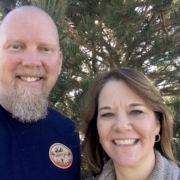
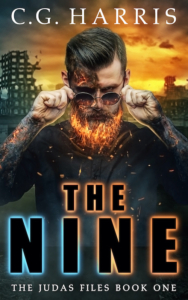
C.G. Harris
The Nine
Poudre River Public Library District
Tell us a little bit about yourself.
C.G. Harris is an award winning science-fiction and fantasy writing team from Colorado who draws inspiration from favorites, Jim Butcher, Richard Kadrey and Brandon Sanderson. For nearly a decade, Harris has escaped the humdrum of the real world by creating fictional characters and made-up realities. When not writing, Harris spends time collecting the elusive arcade token, from the golden age when Dig Dug and Frogger were king. Harris knows the value of such a collection will only be seen in the confused faces of those family members left behind long after C.G. Harris is gone.
Tell us a little bit about your winning book.
The Nine is the first book in a dark humor urban fantasy supernatural adventure series that takes place in a spectacular location … Hell. The main character has just been reluctantly recruited by Judas Iscariot (yes, that Judas), to become a double agent to prevent unnatural disasters in the living world. Gabe just needs to figure out how to do it without botching the missions or revealing his true identity.
What made you want to be an author?
Loads of money and fame. Kidding. Stories change people. They make lives better, provide an escape, give hope. Writing is a way to change the world we live in one dragon, love story or spaceship at a time.
How have libraries played a role in your indie author journey?
Libraries provided a quiet place to write and immerse myself in story. Plus by being surrounded by so many great books, you can’t help but be inspired.
Do you have any advice for aspiring indie authors?
Never stop writing. Your journey is your own and you should enjoy all the roads and paths it takes you. Don’t compare your writing journey to someone else’s. Yours is special and unique to you. Cherish it!
2021 Connecticut Author Project Winners
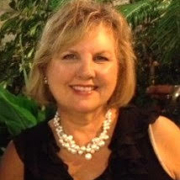
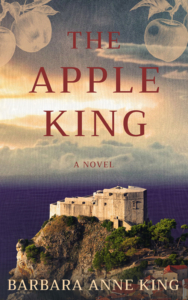
Barbara Anne King
The Apple King
Weston Public Library
Tell us a little bit about yourself.
Barbara Anne King is the author of The Apple King, The California Immigrant, and Where Flowers Grow, novels set in her hometown on Monterey Bay.
Barbara was born and raised in Watsonville, California, a third-generation Croatian-American whose great, great uncles were pioneers in the town’s apple industry which they helped develop into the Apple Capital of the World. After graduating college, armed with a political science degree, she headed east for a job on Capitol Hill. Along the way, she held positions in broadcast news and corporate public affairs.
Ever since she was a young girl, Barbara had an ear for a story. Although, she always harbored a secret wish to be a storyteller. Taking to heart George Eliot’s words, “it is never too late to be what you might have been,” she reinvented herself as an author.
Barbara lives in a Connecticut with her husband in the place they’ve called home for thirty years. Their three children visit often.
Tell us a little bit about your winning book.
The concept for The Apple King was the result of serendipity. It happened in June 2019 during my book signing for The California Immigrant at Kelly’s Books in Watsonville. A woman approached me and asked if I was familiar with Blossoms into Gold, a history of Croatians in Pajaro Valley. Since I was not, she retrieved it from the shelf and took me through a few pages. Then she disappeared before I learned her name, leaving the book on the table. At the end of my event, the book was still there. Rather than return the book to the shelf, I purchased it. That evening, as I read the history of Croatian pioneers, a story emerged which captivated me. And I discovered that my great, great uncles were patriarchs of the colony. My personal connection moved me to tell the story of a Croatian immigrant who helped turn Watsonville into the Apple Capital of the World. But after more research, I realized that was only part of a much larger story—one of global significance.
After finishing Blossoms into Gold, I contacted co-author, Donna Mekis, to discuss her book. Donna referred me to The Slav Community of Watsonville, California, which is a collection of newspaper clippings about local Croatians during the turn of the Twentieth Century. I found the pdf online and culled through over eight hundred pages of entries, offering a glimpse of life in those bygone days. Near the midway point, I learned the Austrian Counsel, a Slav from Slovenia, had come to town to discuss the situation in the Balkans. On his heels, several prominent speakers followed, urging local support for a Jugo-Slav state. The Croatian colony in Watsonville played a significant role in its creation. But who knew? This seemed to be a piece of lost history. And it changed the theme of my story from an immigrant who makes good to one who uses his wealth and influence to win freedom for his fatherland.
This is my second historical fiction novel about events in my hometown. I stand in awe of all that occurred there during the first half of the twentieth century. It is my hope The Apple King will give Croatians new pride in our compatriots’ accomplishments. And that readers everywhere will find inspiration in this amazing story.
What made you want to be an author?
I’ve always wanted to be a storyteller. Instead, I became a listener of stories until a story I had collected in my memory grabbed a hold of my heart strings and demanded to be written.
How have libraries played a role in your indie author journey?
Libraries have been an incredibly helpful resource to me. Before I began writing, I joined a book group with a professional leader. Through that group I learned more about fiction and what readers like in a story. Two members in my group have been instrumental to my success. One, a fiction teacher at NYU, told me about the Indie Authors program at Norwalk Library. The other, a former NYC editor, has been supportive of my books and written thoughtful reviews. Norwalk library has welcomed my participation in book talks and Indie Author days. Weston library has promoted my books online, purchased my books for their shelves, and invited me to speak. Both The California Immigrant and The Apple King have been chosen for the Indie Author Project’s Overdrive Curated Collection for libraries. I look forward to that program helping my novels reach a wider audience.
Do you have any advice for aspiring indie authors?
I encourage aspiring indies to Join writers’ groups. A Romance Writers of America chapter has been helpful to me because many members are published, both traditional and indie, and they focus as much attention on the business as the craft. Indie authors must be strong on the business side–maybe even stronger than on the creative side. I also suggest that aspiring indies tap into free webinars on the web from credible sources. You’ll find everything from craft to publication to the business of an author. There are also many writing conferences available online at a low cost. It’s important to always keep learning as trends and technology changes overtime.
2021 Florida Author Project Winners
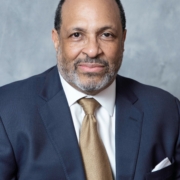
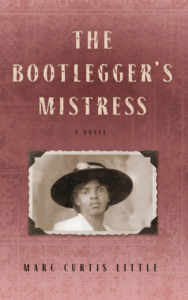
Marc Curtis Little
The Bootlegger’s Mistress
Jacksonville Public Library
Tell us a little bit about yourself.
Marc Curtis Little is an award-winning author of six novels and one of America’s better known independently published authors. His historical fiction-inspired novels Faithful Servants: The Collector’s Edition, After Obama and Magnificent Redemption earned four Next Generation Indie Book Awards during the past seven years. Marc’s research for The Bootlegger’s Mistress brought renewed interest in his family’s background, #finallyfindingfamily. He remains linked to his former career as a broadcast media journalist and public relations counselor, though he is a self-described devotee of genealogy. A proud native of Newark, New Jersey, Marc lives with his family in Jacksonville, Florida
Tell us a little bit about your winning book.
The Bootlegger’s Mistress embodies the essence of The Great Migration—the decades-long movement of six million African Americans from the racially oppressive South to the purportedly economic opportunity-laden North during much of the twentieth century.
What made you want to be an author?
As an avid reader of anything I could get my hands on since the age of three, I would sometimes wonder how the writer of the book or article framed the story. I believe I found the formula when, as a teenager, I began writing a book about the experience of being a member of a two-time state championship basketball team that was once rated number one in the country. Though I did not complete the task, I developed an appetite for being a writer. During my chosen careers in mass communications and public relations I wrote speeches, articles, op-eds and other literary pieces, which made me think about life as a published author. I started writing professionally in 2007 at the age of fifty-six and I am still at it fourteen years later.
How have libraries played a role in your indie author journey?
I am still in the process of understanding how libraries contribute to the economic side of my career. However, the opportunities to make presentations to three libraries in particular—Jacksonville (FL) Public Library system and two libraries in Newark (NJ), the downtown branch and the Weequahic branch—allowed me to participate in book signings and author discussions, which exposed my talents to wider audiences.
Do you have any advice for aspiring indie authors?
Always believe they are just as talented as traditionally published authors. They should publish their work as if they are contracted with some kind of publishing house; that is, have their books edited and designed by professionals. There are a number of ways to find freelancers who do that kind of work. It is up to those who are committed to being independently published to be diligent in seeking them. They should also meet with book clubs, participate in publishing discussions online and in-person, and whenever possible, enter their books in credible book competitions. One more thing: read as much as they can about the business of publishing and consume it like it’s a meal.
2021 Illinois Author Project Winners
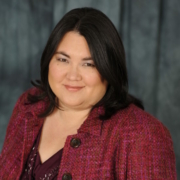
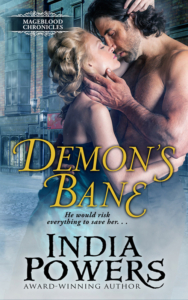
India Powers
Demon’s Bane
Gail Borden Public Library District
Tell us a little bit about yourself.
Tell us a little bit about your winning book.
What made you want to be an author?
How have libraries played a role in your indie author journey?
Do you have any advice for aspiring indie authors?
2021 Louisiana Author Project Winners
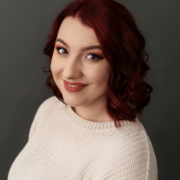
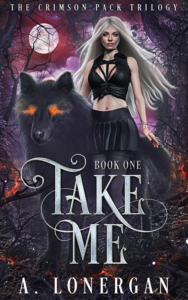
A. Lonergan
Take Me
Livingston Parish Library
Tell us a little bit about yourself.
I am twenty-six years old and I have been writing since I was eleven. I wrote my first five book series when I was in high school but didn’t get around to publishing until I was about twenty-one. As well as writing full time, I’m also a homeschool mom to my little boy, which I absolutely love (most of the time). My husband was my high school sweetheart and we have been together for 9 years! We both have strong Cajun roots so I try to incorporate that into my books. I love all things makeup and artistry- I have even designed some of my own covers. On the side of all of this, I also have an etsy shop where I create book merch and stickers.
Tell us a little bit about your winning book.
My winning book was written during the pandemic, it was actually a dream I had. I woke up and knew if I didn’t write it, I would lose the story. The story was nonstop. I couldn’t eat, sleep, or do anything until I wrote it. The same can be said for the rest of the series. It took control of my entire existence and is actually one of my favorite stories (that I’ve written). It’s audio will be available in a few months and I can’t wait to hear the characters come alive! This series had actually inspired a spinoff that will be releasing next year!
What made you want to be an author?
My father passed away when I was eight years old. I had no idea that I was going through depression or anxiety but when I was eleven, I started to write these songs (they were so dark and embarrassing) but it was a huge outlet for all of these foreign emotions I was feeling at the time. Music and reading became my escape and then writing set my soul free. In high school I never knew if I would live to see my stories come to life and now, here I am, living that dream.
How have libraries played a role in your indie author journey?
Libraries were a huge part of my high school existence. Not only did I help out the librarians at school during PE and lunch, but I also spent countless hours in the public library across the street from my parent’s home. I would bring home ten books a week (I was maxed out) and devour them as quickly as possible. i don’t think I would have found this love of reading and writing without the library. I honestly don’t know if I would be here today if I hadn’t had those stories to escape to.
Do you have any advice for aspiring indie authors?
My advice for aspiring authors… write the book. Don’t worry about editing or what people might think. Let the characters speak to you then worry about the rest when it’s finished.
2021 Minnesota Author Project Winners
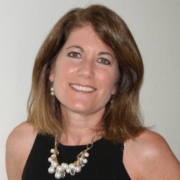
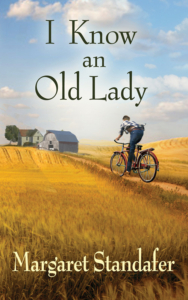
Margaret Standafer
I Know an Old Lady
Carver County Library
Tell us a little bit about yourself.
I’m married with two adult children. I was born and raised in Minnesota, and have lived in Chanhassen for nearly 28 years. Aside from writing, I enjoy traveling, hiking, gardening, swimming, reading, and anything that means I get to spend time with my family.
Tell us a little bit about your winning book.
I Know an Old Lady was born from that single line in the nursery rhyme, I know an old lady who swallowed a fly… One day the lyrics got stuck in my head and the story blossomed. It is the story of Billy, a teenager living in Kansas in the early 1970s. Billy’s family life is far from ideal and with no one to rein him in, he finds himself in trouble one time too many. The result is a sentence to spend his summer working for Mrs. Baxter, the reclusive old woman who has long been a suspect in the decades-old disappearances of some local children. While Billy sweats through the long, hot summer, painting and doing yard work for Mrs. Baxter, the two gradually come to an understanding and Billy’s life is forever changed.
The further I got in writing Billy’s story, the more invested I became in him. More so than with other stories I’ve written, Billy was almost a part of me and oftentimes, I just had to sit back, wait, and listen for him to tell me his story. When I finished, I felt I’d given the story everything I could, but as a writer, one never knows how a story will be received. It’s been wonderful and amazing to me that so many people have also loved Billy’s story.
What made you want to be an author?
This is a question I always sort of hate answering, because I feel guilty telling my story. I didn’t want to be a writer. At least, not for a long time. I was the girl in school taking all the math and science classes and who took great lengths to avoid having to do anything remotely artistic. Over the years, my husband told me, repeatedly, ‘You should write a book.’ I never understood why he said that, and told him so! Looking back, I did make up a lot of stories…bedtime stories for the kids, or my own endings to books and movies where I didn’t like the ending provided, and I would dream full length movies, or fully fleshed out stories. For too long, I ignored all the clues. Then the day came when my youngest left for college, I suddenly had too much time on my hands, and without telling a soul, sat down with my laptop and started writing a book. Three months later, my first novel, Misty Lake, was completed. I have never looked back. And I have apologized to my husband!
How have libraries played a role in your indie author journey?
From the time I was a little girl, I loved books. My parents like to tell me how I had all my books memorized and would call them out if they tried to skip even a single word. I taught myself to read before Kindergarten, and have been an avid reader ever since. I remember begging my mom to take me to the library so I could get the next Nancy Drew book, and I remember when she finally told me to get on my bike and ride there myself. We lived in Coon Rapids at the time, and the library was quite a distance from home, but times were different, and off I went. When I was a teenager, we moved to New Hope so I pointed my bike in the direction of the Crystal library. I think I wore out my library cards. Living in Chanhassen for as long as I have, I started out visiting the old library that now houses the senior center, and I watched as the beautiful library we have now was built. My kids even have their handprints on wall tiles from the grand opening celebration. I will forever be grateful to the amazing libraries that have been a part of my life… for the adventures, for the education, for the comfort.
Do you have any advice for aspiring indie authors?
There’s the usual…keep writing, keep reading. If writing is something you want to do, stick with it, because it doesn’t happen overnight. Reading is just as important. I find that when I read, I’m more inspired to get back to my own writing. The other piece of advice I offer to someone just starting out is don’t tell anyone what you’re doing. It sounds strange, maybe, but when I wrote my first book, no one knew I was doing it. If I had told people, and if I’d had to answer all the questions about when it would be done, and what it was about, I honestly don’t know if I would have finished it. Take that pressure off yourself, write your book, and then surprise everyone!
2021 Missouri Author Project Winners
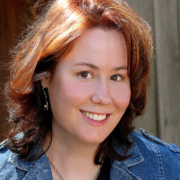
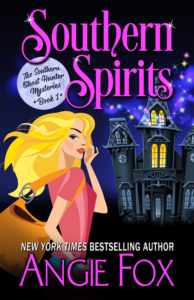
Angie Fox
Southern Spirits
St. Louis County Library
Tell us a little bit about yourself.
New York Times and USA Today bestselling author Angie Fox writes sweet, fun, action-packed mysteries. Her characters are clever and fearless, but in real life, Angie is afraid of basements, bees, and going up stairs when it is dark behind her. Let’s face it. Angie wouldn’t last five minutes in one of her books.
Her books have been called “fabulously fun” by the Chicago Tribune and have won multiple Daphne awards for mystery and PRISM awards for fantasy. Angie is best known for her SOUTHERN SPIRITS™ mysteries and for her ACCIDENTAL DEMON SLAYER series. She has also just released the new MONSTER MASH trilogy, which is gaining a lot of attention.
Angie is a graduate of the University of Missouri School of Journalism and lives in St. Louis, Missouri.
2021 New York Author Project Winners
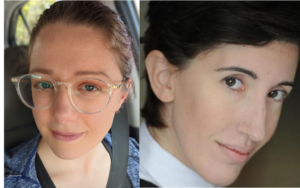
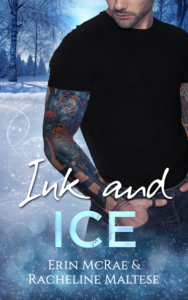
Erin McRae & Racheline Maltese
Ink and Ice
Brooklyn Public Library
Tell us a little bit about yourself.
We’ve been writing together for eight years, and Ink and Ice is our ninth novel. Erin (she/her) lives in Rochester, NY and Racheline (they/them) lives in Brooklyn, NY, each with varying assortments of partners/cats/children. Racheline is a former journalist, and Erin is a former international relations professional. We like to say we write romances for difficult people with complicated lives.
Tell us a little bit about your winning book.
Ink and Ice is a romance between a former war reporter and an elite athlete set in the world of competitive figure skating. Both men in the book are navigating the tension people experience when publicly revealing their private selves through creative work. Much of the story takes place on the Lake Erie islands where natural beauty, an isolated landscape, and a local myth about a colony of inland seals ultimately make it impossible for our characters to hide from themselves. Ink and Ice is simultaneously a fable filled with magic and a modern romance.
What made you want to be an author?
How have libraries played a role in your indie author journey?
Libraries have been a huge part of our journey as authors. An earlier novel of ours, A Queen from the North, was one of the top 10 most circulated IAP books in 2020. Libraries are how we find new readers and generate word of mouth enthusiasm for our work. All of our books also have a heavy research component, which would be impossible for us to conduct without the resources of the Monroe County and Brooklyn public library systems.
Do you have any advice for aspiring indie authors?
Believe in your voice. The weirdest part of what you’re writing – that maybe traditional publishing has told you it doesn’t know how to sell – is often the most essential. Find the themes that only you can write, shoulder into them, and produce a relentlessly professional product.
2021 North Carolina Author Project Winners
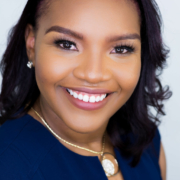
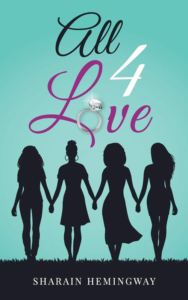
Sharain Hemingway
All 4 Love
Charlotte Mecklenburg Library
Tell us a little bit about yourself.
Sharain Hemingway always had a passion for the written word. As a young girl, she discovered writing as a form of therapy and self-expression and believes it fuels her ability to shift thinking, behavior, and culture in both her personal and professional life. Through poetry, novels, and short-stories, Sharain aims to bridge generational gaps and create lasting ties that bind. A proud member of Delta Sigma Theta Sorority, Incorporated, she is an advocate for empowering women, shaping young minds, and encouraging individuals to be the very best version of themselves. As Sharain continues to set the pace, she hopes her imagination and writing style will be sure to Activate Your Inner Desires. Sharain is a native of Myrtle Beach, SC, and a graduate of Winthrop University.
2021 Ohio Author Project Winners
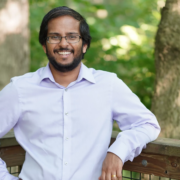
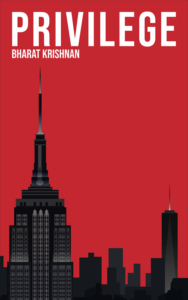
Bharat Krishnan
Privilege
Columbus Metropolitan Library
Tell us a little bit about yourself.
I worked in politics for the first ten years of my professional career. That experience working as a campaign manager across a dozen states really influenced my journey as a storyteller.
Tell us a little bit about your winning book.
At its core, Privilege is an exploration of racism as magic. A group of Indian-Americans who are childhood friends steal this magical drug conceptualized as white privilege in modern-day NYC. I pitch it as Ocean’s 11 meets House of Cards. There’s a touching LGBT love story, a gripping presidential campaign with larger than life characters, and some fight scenes inspired by Fonda Lee’s Green Bone Saga.
What made you want to be an author?
I’ve wanted to be an author since I was 11 and read The Outsiders by S.E. Hinton. Drawing that kind of emotion from a stranger in so few pages, that’s special. The ability to touch the human soul and leave your mark in such an enduring way is something I hoped to achieve through my writing.
How have libraries played a role in your indie author journey?
I started doing library outreach this year in earnest and was thrilled when my local library agreed to carry some of my works. Libraries are temples of knowledge that need to be revered and I think it’s important all indie authors recognize the tremendous opportunity they have to improve their marketing through the use of libraries.
Do you have any advice for aspiring indie authors?
I’ve been in the indie author space for about five years now, and I think something that’s really helped me thrive in this space is allowing myself to take advantage of some of the things offered to indie authors over trad authors. What I mean by that is that I genre hop, my manuscript lengths vary, I’m not afraid to exercise the freedom that comes with being an indie author. I think a lot of indie authors initially get into the space because they didn’t get the results they were hoping for in the trad space, but it’s two very different paths and neither is better than the other one, but if you want to go indie then don’t be afraid to go indie all the way. Commit to the pros and cons.
2021 Ontario Author Project Winners
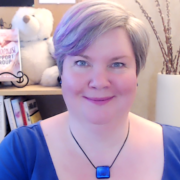
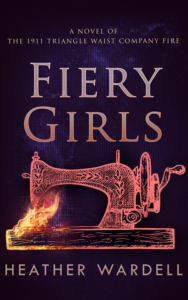
Heather Wardell
Fiery Girls
Markham Public Library
Tell us a little bit about yourself.
I’m a natural 1200-wpm speed reader and the author of twenty-two novels. I started writing in 2005, after careers as a software developer and an elementary school computer teacher, and I don’t think I’ll ever stop. I love getting to talk to readers, both online and when I can in person, and knowing my books have made a difference in their lives is what keeps me going. In my spare time, I read, play drums and clarinet, crochet, and do everything my cat demands of me.
Tell us a little bit about your winning book.
Fiery Girls is a departure for me, as it’s historical fiction and my other books are all set in modern times. I read a lot of historical fiction, though, and I thought I might like doing the research necessary to write one. It turned out I absolutely love research and finding ways to incorporate that research into a novel without it becoming a textbook.
Fiery Girls is about two teenage immigrants, Rosie and Maria, who become friends during 1909’s “Uprising of the 20,000” garment workers’ strike, and are working at the Triangle Waist Company on March 25, 1911 when a discarded cigarette sets the factory ablaze. Though it’s obviously sad in parts due to the fire and the 146 lives lost in it, I also did my best to include fun and hope and uplifting moments, because the young immigrants and their friends were so inspiring as they made new lives for themselves in their new country of America.
What made you want to be an author?
It started on a whim, frankly. My husband went on a six-week business trip in 2005, and I had the idea to spend the time trying to write a novel since I loved reading them so much. By the time he was home, I was hooked. I’ve been writing ever since, and that book is now my free-to-download “Life, Love, and a Polar Bear Tattoo”. What I love about writing is creating characters and placing them in various situations and watching how they react. Sometimes they do what I would do and sometimes they do completely the opposite, and in either case it’s such an amazing experience to create books and have them read.
How have libraries played a role in your indie author journey?
As a speed reader, I go through a lot of books (89 so far this year, a bit behind last year’s total of 126). I do buy indie books as often as I can, because I know indie authors both need and deserve support, but for other books I frequently use my local library’s Overdrive ebook section. It’s great to be able to access nearly everything I want to read from home, and of course during the pandemic it was invaluable. I also did a good part of the research for “Fiery Girls” at the Toronto Reference Library, a lovely space to work in with great resources. I would love to do some presentations or book clubs at libraries, should the opportunity arise!
Do you have any advice for aspiring indie authors?
1. Persevere. When you can’t do that anymore, take a break, then try again. If you want a career as an author, at whatever level you want it, you have to keep showing up. Every step of writing a book then releasing it is challenging, and there’s no substitute for continuing to make tiny steps forward.
2. Be consistent. You can certainly write different kinds of books (mine include three about a reality tv show and one about coping with your sister being in a coma), but there should be something in all of them that readers can recognize as being you. For me, a “Heather book” includes flawed but driven fully fleshed-out characters with dreams and goals, and at least somewhat true-to-life situations. (Each one also includes the words ‘polar bear’ at least once, in honour of my first book. My most connected readers know this and watch for it as they read.) This lets readers know at least some of what they’ll get when they pick up your work, and if they like what you are consistently doing, they will consistently read your work.
3. Be more about what you can give to your readers than what they can give to you. I see authors demanding their fans promote them in ways the fans don’t find comfortable, and it doesn’t make me want to read those authors. I do ask mine to share the books with friends and family, and they do that, and I feel that’s more than enough. I’m so grateful for their support and their kindness, and I always feel honoured that they are willing to read something I wrote.
2021 Texas Author Project Winners
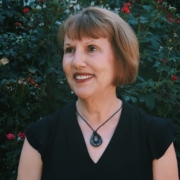
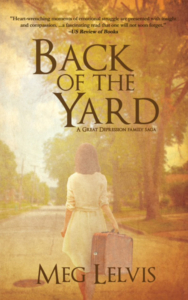
Meg Lelvis
Back of the Yard
Houston Public Library
Tell us a little bit about yourself.
I grew up in northern Minnesota, and recently moved from Houston to Orlando to be near family, where we’re enjoying our new house and city.
Tell us a little bit about your winning book.
As a former English and psychology teacher, I began writing short stories and poems before diving into my first novel. My winning novel, Back of the Yard, was inspired by my interest in the Depression Era, along with my enjoyment and familiarity with Chicago. My main character, Betty O’Leary, grows up near the old Union Stockyards, of Upton Sinclair’s The Jungle neighborhood. Mainly, I wanted to show how grief and mental illness can affect an entire family, struggling and ultimately healing through the power of compassion. I wanted to set the story against the backdrop of a cultural and changing America from the 1930s through mid-century.
What made you want to be an author?
How have libraries played a role in your indie author journey?
Do you have any advice for aspiring indie authors?
Advice I might give new writers: reach out to other writers for ideas and support, find a group or one person to give you honest feedback on your writing, whether one chapter or the entire manuscript. Expect road blocks, bumps, and detours, take a step back, and then return to the road!
2021 Virginia Author Project Winners
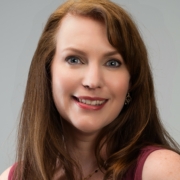
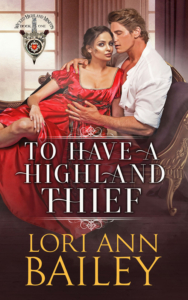
Lori Ann Bailey
To Have a Highland Thief
Fairfax County Public Library
Tell us a little bit about yourself.
I’m an Amazon and Barnes & Noble best-selling author and winner of the National Readers’ Choice Award and Holt Medallion for Best First Book and Best Historical. I write hunky highland heroes and strong-willed independent lasses finding their perfect matches in the Highlands of historic Scotland. I’ve served on Romance Writers of America committees on the national and local levels and have been translated into Japanese. I have five books that have been published by a small press publisher and four books, one novella, and one short story that I’ve self-published. I’ve recently branched into narrative historical fiction by writing a historical fiction/true crime manuscript that is yet to be published and I’m working on a World War II Holocaust novel. So basically, I love anything that requires opening a book and researching a new time period. When not writing or reading, I enjoy time with my real-life hero and four kids or spending time walking or drinking wine with friends.
Tell us a little bit about your winning book.
The Wicked Highland Misfits series began when I decided to write about unconventional heroes and heroines that needed to redeem themselves. The first character that came to life in my mind was a female pickpocket who was stealing from an earl who had just won back his family’s fortune in a game of chance. I loved writing the instant conflict between them and the back-and-forth banter they shared.
What made you want to be an author?
Insomnia. As far back as I can remember, I’ve always told myself stories to try to sleep at night, I just hadn’t put together that I could share those tales with other people. When I moved into my current neighborhood, I joined two different book clubs so that I could meet other moms in the area. I picked up that first book, started reading, and was hooked. One sleepless night in my mid-thirties, the pieces just fell into place and I realized that I needed to write out the scenes that played over and over again in my head. Since then, I haven’t been able to stop. Theses stories are part of who I am and I feel like I grow along with my characters.
How have libraries played a role in your indie author journey?
Libraries give us the tools to apply our trade. From the Fairfax County Library, I’ve checked out books on craft, on the time periods I’ve researched, and I’ve attended workshops and talks hosted by the nearby branches. I’ve been on author panels in the Loudoun County and Fairfax County systems and I always learn something new from the other authors in attendance. During my time as program coordinator with RWA, I organized workshops at the Arlington Public Library.
One of my favorite ways to kick my focus into gear is to head to the quiet room of my local library. Once, there, I know my time is all about writing and I’m not distracted by things at home. I also truly enjoy checking out audiobooks from my library, because we need to continue reading and hearing stories to refill our creative wells.
I’m fortunate that I live close to the Library of Congress and have my reader/researcher card. The setting is inspirational and the scope of their collection is beyond comprehension. Whether it’s sitting in the breathtaking red-orange marbled and columned circular Main Reading Room, taking a tour and learning about the building’s history, standing in the Map Room and holding a map of Edinburgh, Scotland from 1827, or sifting through a box of Civil War diaries in the Manuscript Room, you will find something there you didn’t know you needed. If you ever have the chance to go, do it!
Do you have any advice for aspiring indie authors?
There are so many factors that make a successful writing career, but the first thing you have to do is protect your writing time and get words on the page. Don’t be worried if it’s not perfect or your story falls flat at the beginning. We all have doubts and bad words are easier to fix than a blank page. No first draft is ever perfect.
Find your writing community. Being an author isn’t easy and you will need the support. Reach out to your local libraries to see if there are writing groups in your area, check for conferences in your genre, participate in NaNoWriMo and the meetups provided by the liaisons.
Never stop learning the craft. Even if you’ve heard a talk before, you don’t know when a new idea will strike or you’ll figure out what that missing piece in your plot is. If you can’t make it to workshops, check out books from your library – there are so many great ones to learn from. Or listen to an audiobook or podcast on writing. Like any job, you have to put in the effort to improve your skills.
2021 West Virginia Author Project Winner
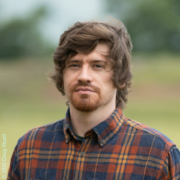
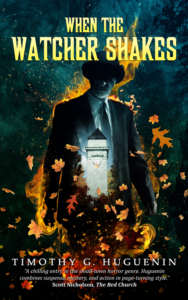
Timothy G. Huguenin
When the Watcher Shakes
Five Rivers Public Library
Tell us a little bit about yourself.
Having been raised in West Virginia, I feel a deep love and connection to this beautiful, complicated state. These dark, mysterious hills and their people have been a major influence on my writing. It has always been important to me to convey an authentic sense of place to my readers, even when the locations I’m describing are fictional. Almost all of my fiction is set in West Virginia.
Tell us a little bit about your winning book.
When the Watcher Shakes was my first novel. It is about a pseudo-Christian cult hidden in the mountains, and it has a lot to do with my own experiences seeing men turn faith into a tool whereby they would exert power over others, rather than a freeing pathway to a relationship with God. Though I wrote the book in part to work out some of my own issues with religion, I really tried to tell a suspenseful and compelling story that anyone can enjoy.
What made you want to be an author?
Books have always been a major part of my life. I am lucky enough to have been raised in a household of readers, a bit before this era of ubiquitous internet connectivity and handheld devices, which we’re now all addicted to. I have wanted to write almost as early as I started to read. I guess I loved books so much that I wasn’t satisfied with just reading others’ stories; I wanted to make up my own.
How have libraries played a role in your indie author journey?
Do you have any advice for aspiring indie authors?

